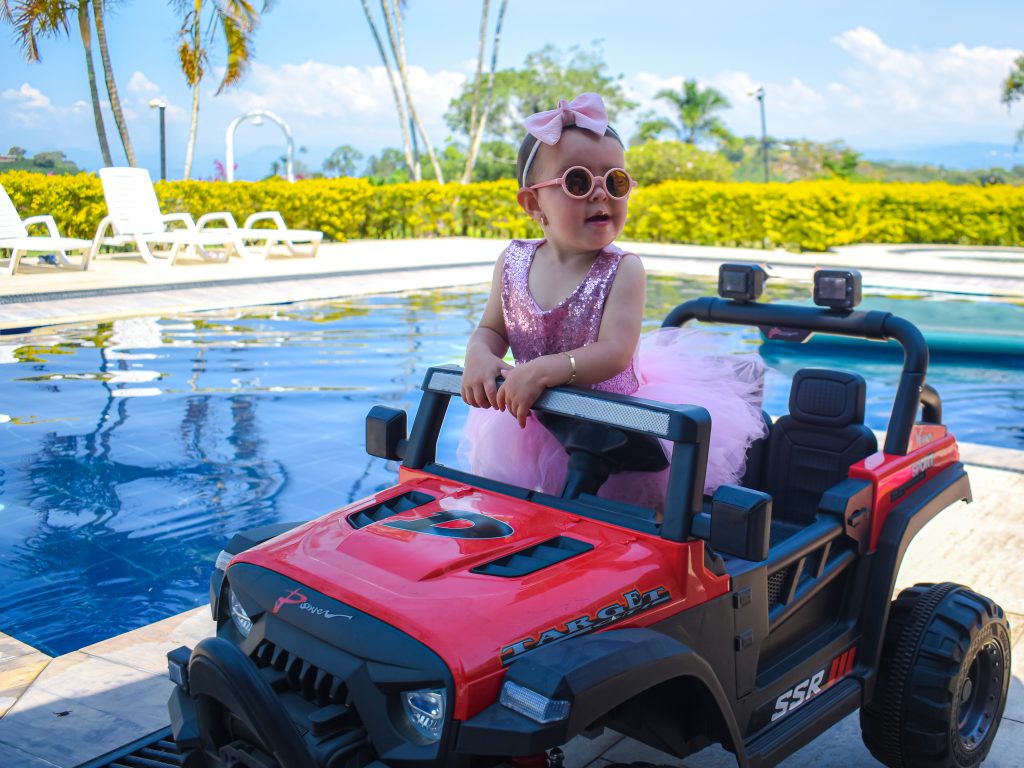Thinking about filing for sole custody of your child? It’s a big decision, and we understand that you may have concerns or questions about the legal process. That’s why we’re here to provide you with reassurance and guidance. In this article, we’ll address common legal concerns related to sole custody and help you understand the steps you need to take. We’ll also provide important information to help you make informed decisions and create an emotional connection to your case. So, if you’re ready to take the next step and seek assistance, give us a call. Our experienced attorney is here to help you navigate through the complexities of sole custody and protect your child’s best interests.

What is Sole Custody?
Sole custody is a legal arrangement in which one parent is granted the exclusive rights and responsibilities for making major decisions regarding the child’s upbringing. In a sole custody arrangement, one parent is designated as the custodial parent, and the other parent, known as the non-custodial parent, may have limited visitation rights or no visitation at all. This type of custody is typically awarded in cases where the court determines that it is in the best interests of the child to primarily reside with one parent and have that parent make decisions on their behalf.
Benefits of Sole Custody
Decision-making authority
One of the primary benefits of sole custody is that it gives the custodial parent decision-making authority over important aspects of the child’s life, such as education, healthcare, religious upbringing, and extracurricular activities. This allows the custodial parent to make these decisions based on what they believe is in the best interests of the child, without having to consult or seek approval from the non-custodial parent.
Consistency and stability
Sole custody provides the child with consistent and stable living arrangements. By primarily residing with one parent, the child can establish a routine and have a stable home environment. This stability can be particularly beneficial for younger children who thrive on routine and familiarity.
Safeguarding the child’s well-being
In cases where there may be concerns about the non-custodial parent’s ability to provide a safe and healthy environment for the child, sole custody can help safeguard the child’s well-being. The custodial parent can ensure that the child is protected from any potential harm or negative influences that may arise from the non-custodial parent’s actions or lifestyle choices.
Factors Considered in Determining Sole Custody
When determining whether to award sole custody, the court takes into account several factors to ensure that the decision is in the best interests of the child.
Parent-child relationship
The court will consider the nature of the relationship between each parent and the child. Factors such as the level of involvement, quality of interaction, and the child’s preference, if they are old enough to express one, may be taken into consideration.
Parental fitness
The court will evaluate each parent’s ability to meet the child’s physical, emotional, and developmental needs. This includes factors such as the parent’s ability to provide a stable home environment, financial resources, and their willingness and ability to facilitate the child’s relationship with the other parent.
Child’s best interests
The child’s best interests are always the court’s primary consideration. The court will assess various factors, such as the child’s age, health, and adjustment to their current living situation, in order to determine what custody arrangement would be most beneficial for the child’s overall well-being.
Criminal or abusive behavior
If there is evidence of criminal activity or a history of abuse by either parent, the court will take these factors into serious consideration when determining custody arrangements. Protecting the child from potential harm is of utmost importance to the court.
Willingness to co-parent
The court looks into the ability of each parent to cooperate and communicate effectively with each other for the benefit of the child. A parent who demonstrates an unwillingness to co-parent or engage in healthy communication may have their chances of being granted sole custody diminished.
Legal Process for Obtaining Sole Custody
Obtaining sole custody involves following a legal process. While the specific details may vary depending on the jurisdiction, the following general steps are typically involved:
Filing a petition
The custodial parent must initiate the legal process by filing a petition for sole custody with the appropriate court. This petition outlines the reasons why sole custody is being sought and provides supporting evidence.
Gathering evidence
To support the request for sole custody, the custodial parent must gather evidence that shows why it is in the best interests of the child to reside primarily with them. This may involve gathering documentation, such as school records, medical records, and witness statements, that demonstrates the non-custodial parent’s inability to provide a safe and stable environment for the child.
Court hearings
Once the petition is filed, both parents may be required to attend court hearings where they will present their respective cases to the judge. The judge will consider the evidence and arguments presented by both parties before making a decision regarding sole custody.
Negotiating a parenting plan
In some cases, the parents may be able to negotiate a parenting plan outside of court. This plan outlines the specific arrangements for custody and visitation, as well as the decision-making authority of each parent. If an agreement is reached, it must be approved by the court to become legally binding.

Challenging Sole Custody Decisions
While the court’s decision regarding sole custody is typically final, there are circumstances in which it can be challenged or modified.
Modifying a custody order
If there is a significant change in circumstances that affects the child’s well-being or one parent’s ability to care for the child, either parent can seek a modification of the custody order. This may require presenting new evidence to the court that supports the need for a change in custody arrangements.
Proving a change in circumstances
In order to successfully challenge a custody order, the parent seeking the modification must demonstrate a material change in circumstances since the original custody order was issued. This could include factors such as a change in the parent’s living situation, a pattern of substance abuse, or a documented change in the child’s needs.
Seeking professional advice
Challenging a custody decision can be a complex and emotionally challenging process. It is advisable to seek the guidance of a family law attorney who specializes in custody cases. They can provide valuable advice, help navigate the legal process, and advocate for your rights and the best interests of your child.
Frequently Asked Questions about Sole Custody
Can the non-custodial parent visit the child?
In most cases, even if one parent is granted sole custody, the court will still allow the non-custodial parent to have visitation rights. However, the specific visitation arrangements may vary depending on the circumstances and the best interests of the child. It is important for both parents to adhere to the court-ordered visitation schedule and cooperate for the well-being of the child.
Can sole custody be granted temporarily?
Yes, in some cases, sole custody may be granted temporarily. This may occur, for example, if there are concerns about the non-custodial parent’s ability to care for the child due to an ongoing investigation, legal proceedings, or a period of instability. Temporary sole custody is typically granted to ensure the child’s safety and well-being until the situation is resolved or stabilized.
Can sole custody be modified in the future?
Yes, sole custody can be modified in the future if there are significant changes in circumstances that warrant a modification. It is important to note that any modification of custody must still be determined to be in the best interests of the child.
Can grandparents seek sole custody?
In certain circumstances, such as when both parents are deemed unfit or unable to provide appropriate care for the child, grandparents may be able to seek sole custody. However, the specific laws regarding grandparents’ rights vary by jurisdiction, and the court will consider the child’s best interests when making a decision.
Seeking Legal Assistance for Sole Custody
Importance of consulting an attorney
When it comes to matters of custody, it is crucial to consult with an experienced family law attorney who specializes in child custody cases. They can provide guidance, ensure your rights are protected, and help you navigate the complex legal process.
Role of an attorney in sole custody cases
An attorney can provide valuable advice and representation throughout your sole custody case. They can gather evidence, prepare legal documents, present your case in court, and negotiate on your behalf. Their expertise can significantly increase your chances of achieving a favorable outcome in your custody case.
Finding the right attorney
When searching for an attorney to assist with a sole custody case, it is important to find someone who has experience and a track record of success in family law. Seek recommendations from trusted sources, research online reviews and ratings, and schedule consultations to find an attorney who is the right fit for your specific needs.
Tips for Co-Parenting with Sole Custody
Open communication
Maintaining open lines of communication between both parents is crucial for successful co-parenting. Even with sole custody, it is important to keep the non-custodial parent informed about the child’s well-being, important events, and any changes in their life. Effective communication can help both parents stay involved in the child’s life and make joint decisions, even if the responsibilities are not legally shared.
Respecting the parenting plan
If a parenting plan or visitation schedule is in place, it is essential for both parents to adhere to it. Consistency and reliability in following the established arrangements can help provide stability for the child and reduce conflict between the parents. Flexibility and compromise may be necessary at times, but having a clear plan in place can help minimize confusion and disputes.
Prioritizing the child’s needs
In co-parenting situations, the child’s needs should always be the top priority. Both parents should work together to create an environment that promotes the child’s well-being and development. This may involve making joint decisions about schooling, extracurricular activities, and medical care, or consulting each other when major decisions arise.
Avoiding conflicts
Conflict between co-parents can have a negative impact on the child’s emotional well-being. It is important to avoid confrontations, especially in the presence of the child. If disagreements arise, try to find a peaceful resolution through effective communication or seek the assistance of a mediator or counselor to help facilitate the conversation.

Emotional Considerations in Sole Custody Cases
Impact on the child
Sole custody cases can have a significant emotional impact on children. The disruption of the family unit, potential loss of regular contact with one parent, and the stress surrounding legal proceedings can all contribute to emotional distress. It is important for both parents to be sensitive to the child’s emotional well-being and provide the necessary support and reassurance during this challenging time.
Dealing with the emotional aftermath
For both parents, going through a sole custody case can be emotionally draining and overwhelming. It is important to prioritize self-care and seek support from friends, family, or a therapist if needed. Finding healthy outlets for processing emotions, such as journaling or engaging in physical activity, can also be helpful during this time.
Seeking support for yourself and the child
If you or your child are struggling with the emotional impact of a sole custody case, consider seeking outside support. Whether it is through counseling, support groups, or community resources, having a support system can provide invaluable guidance, reassurance, and understanding during this challenging period.
Conclusion
Sole custody is a legal arrangement that can provide a stable and secure environment for a child in certain circumstances. It grants decision-making authority to one parent and is typically awarded when it is determined to be in the child’s best interests. As with any legal matter, it is important to consult with an experienced family law attorney who can guide you through the legal process, protect your rights, and ensure the best interests of your child are met. Remember, seeking legal assistance promptly can help alleviate stress and provide you with the guidance you need to navigate the complexities of sole custody cases.